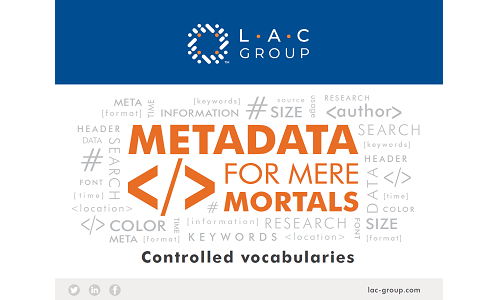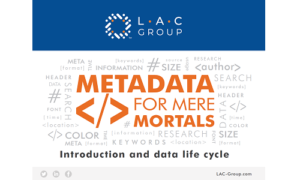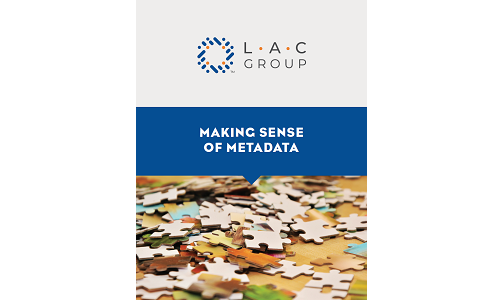In the second report of our series, “Metadata for mere mortals,” librarian Erin Antognoli examines key considerations organizations should take when choosing to employ metadata standards such as:
- The different information needs of the community of users
- The data elements required to accurately describe the collection
- The types of metadata standards—general subject or subject-specific standards
Selecting the metadata standard that best reflects the content of your collection and the needs of the community that will use the data is a weighty decision. The process should involve a series of questions that helps you identify which FAIR principles are most important and leads you to a well-thought out decision on the standard.



